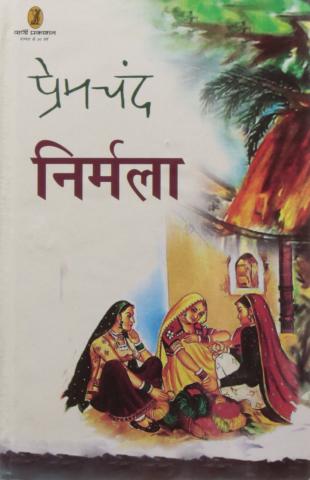Nirmala

"Nirmala," one of the profound works by the legendary Indian writer Munshi Premchand, is a poignant narrative that delves deep into the societal and personal tragedies of its titular character. Premchand, often hailed as the 'Emperor of Novelists' in Hindi literature, uses this novel to critique the rigid social norms and the marriage system prevalent in early 20th-century India.
Plot Overview: The story revolves around Nirmala, a young girl who is married off to a much older widower, Totaram, under the pressure of familial economic constraints. Her life becomes a tapestry of suffering and silent resilience against the backdrop of her stepchildren's hostility, her husband's insensitivity, and the oppressive customs that govern her existence. Through Nirmala's life, Premchand explores themes like child marriage, the plight of widows, economic disparity, and the quest for personal freedom.
Character Development:
- Nirmala stands out as a character of immense grace and fortitude. Her evolution from a naive child to a woman bearing the weight of an unjust marriage is heartbreakingly depicted. Premchand's portrayal of her inner strength, despite her external subjugation, is both subtle and powerful.
- Totaram, while not entirely devoid of sympathy, represents the flawed patriarchal figure, trapped by his own failures and societal expectations. His character adds layers to the narrative, showing how systemic pressures can corrupt even well-meaning individuals.
- The Stepchildren are portrayed with a complexity that avoids caricaturing them merely as antagonists; instead, they are shown as products of their circumstances, mirroring societal flaws.
Strengths:
- Social Critique: "Nirmala" serves as an effective critique of the societal norms that dictate the lives of women. Premchand's commentary on child marriage, the dowry system, and the lack of agency for women is as relevant today as it was when the novel was first published.
- Emotional Depth: The emotional landscape of the novel is rich. Premchand has an extraordinary ability to evoke empathy, making readers feel the injustice and sorrow of Nirmala's life with a haunting realism.
- Narrative Style: The narrative style is straightforward yet layered with philosophical and moral reflections, making it accessible yet profound.
Weaknesses:
- Pacing: At times, the narrative can feel dragged by detailed descriptions of characters' inner turmoils or societal discussions, which might slightly detract from the story's momentum.
- Character Depth: While Nirmala is deeply developed, some secondary characters might have benefited from further exploration, which could enrich the reader's understanding of their motivations.
Conclusion: "Nirmala" is not just a novel; it's a mirror held up to society, reflecting the harsh realities of gender inequality and the silent suffering of many. Premchand's narrative skill ensures that while the story is over a century old, its themes resonate with contemporary issues. For those interested in Indian literature, social reform narratives, or simply a deeply moving story, "Nirmala" is an essential read. It's a testament to Premchand's enduring legacy in literature, where he uses his pen both to narrate and to advocate for change.
Rating: 4.5/5 - A must-read for its emotional depth, social commentary, and literary craftsmanship, with minor reservations about pacing and character depth in some areas.
